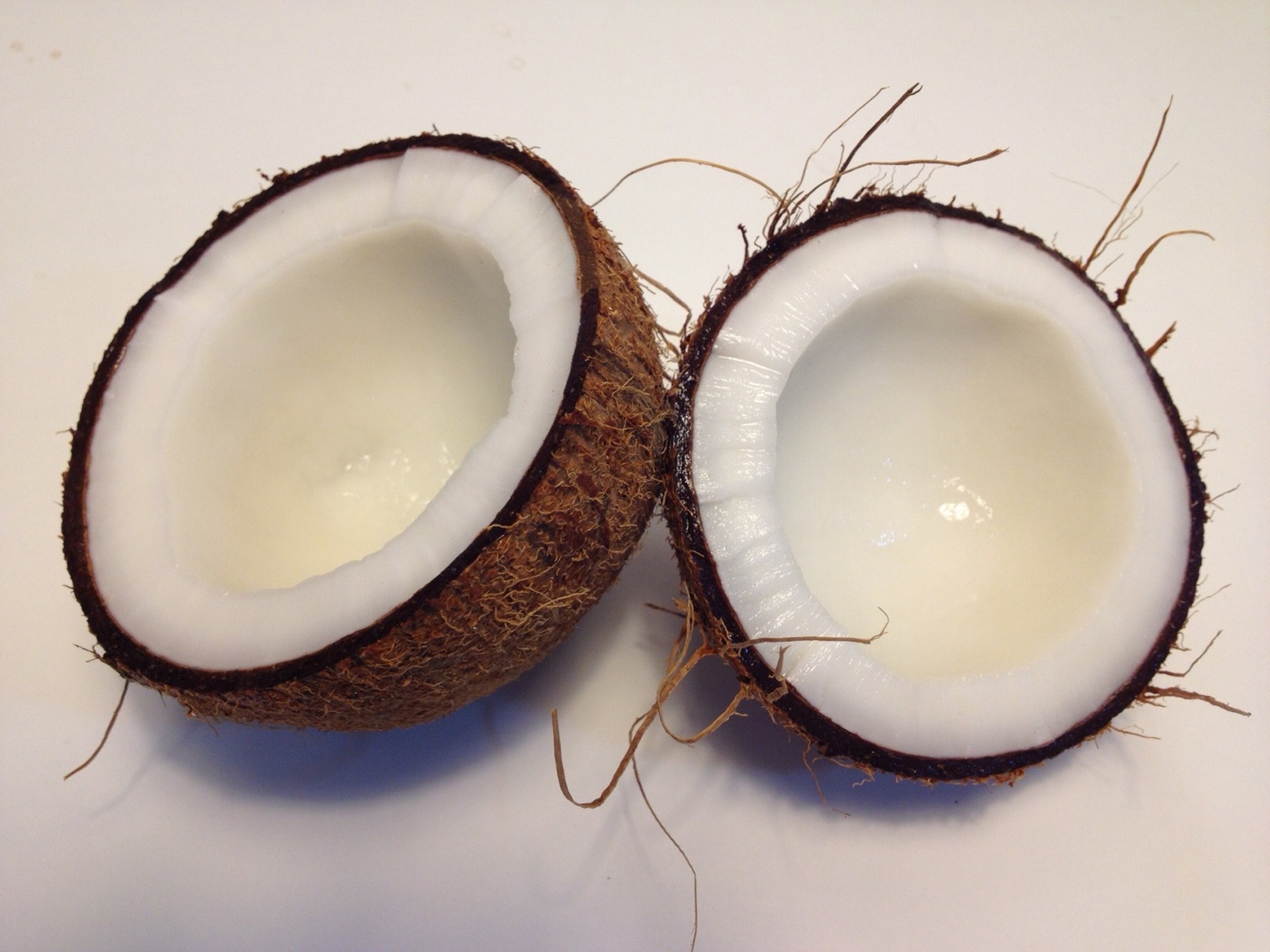
Consume coconut flesh and water but skip coconut oil and cream
More consumers today are cooking with coconut oil because of the buzz about its health benefits, but research does not support its use for heart health. Coconut oil is comprised of several types of fatty acids, including medium chain triglycerides (MCT), which are absorbed into the portal vein unlike other fats. About half of the fat in coconut oil is the saturated fat lauric acid, 70% of which is digested in the gastrointestinal tract and raises cholesterol levels.
Coconut oil is calorie-dense with 130 calories per tablespoon, and 92% saturated fat, which promotes atherosclerosis. Although coconut oil does not increase total cholesterol and “bad” LDL cholesterol levels as much as butter does, it does raise cholesterol levels more than unsaturated plant oils do. So, it’s better to eat poly- and mono-unsaturated fats found in whole plant foods, such as olives, walnuts and avocados.
Likewise, many people are swapping dairy cream with full-fat coconut milk, which is also high in saturated fat. Read what I had to say about canned coconut milk in this article published online in Eat This, Not That!
Some studies found that 100% pure MCT oil may promote fat-burning and weight loss, but these findings can’t be applied to coconut oil. When people hear that coconut oil may boost weight loss, they add it to everything from coffee to smoothies, but the calorie boost will offset any potential weight loss.
For more information about dietary fats and their impact on heart health, check out this blog post about fats which goes into more detail.
BOTTOM LINE: Don’t go loco for coconut: it’s no bueno for your heart or your waist size.
COOKING TIPS FOR COCONUT FLAVOR (WITHOUT THE FAT):
Fiber and other beneficial nutrients are lost in processing when oil is extracted from whole foods. All types of oils are calorie-dense, so they should be used sparingly for the main purpose of imparting their unique flavors to a recipe. Use low-fat coconut milk or whole coconut flesh from the fruit to add real coconut flavor to your foods.
Try these ideas:
- Make a tropical coconut smoothie with low-fat coconut milk. Blend with frozen bananas and pineapple, and sprinkle fresh, shredded coconut on top.
- Instead of cooking with coconut oil, use low-sodium vegetable broth to roast or saute foods.
- Make a healthier curry sauce with low-fat coconut milk in a carton instead of full-fat coconut milk in a can, and thicken sauce with arrowroot starch, pureed pumpkin or sweet potatoes.
- Want a lighter plant-based substitute for whipped coconut cream? Make cashew cream by blending soaked and drained raw cashew nuts with maple syrup and vanilla extract. It’s delicious on fresh fruit, pumpkin desserts and warm apple cobbler.
REFERENCE:
Laurence Eyres, Michael F. Eyres, Alexandra Chisholm, Rachel C. Brown; Coconut oil consumption and cardiovascular risk factors in humans, Nutrition Reviews, Volume 74, Issue 4, 1 April 2016, Pages 267–280, https://doi.org/10.1093/nutrit/nuw002
